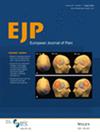Sleep Quality and Cognitive Performance in Chronic Primary Musculoskeletal Pain: An Observational Study With Healthy Controls
Abstract
Background
Chronic primary musculoskeletal pain (CPMP) is a recently defined diagnosis characterised by persistent pain accompanied by emotional distress and/or functional disability. Although sleep disturbances and cognitive complaints are common in individuals with chronic pain, few studies have examined their relationship in CPMP, a condition that remains underexplored. This study aimed to examine whether cognitive functioning in individuals with CPMP is affected by sleep quality, exploring its potential contribution across cognitive domains to the neuropsychological profile of this condition.
Methods
This cross-sectional study included 60 adults, of whom 30 were diagnosed with CPMP and 30 were healthy controls. Participants completed the Numeric Pain Rating Scale, the Symptom Checklist-90-Revised and the Pittsburgh Sleep Quality Index, followed by a standardised neuropsychological assessment consisting of the Stroop test, the TESEN, the Rings Test and the Working Memory Index from the Wechsler Adult Intelligence Scale.
Results
Patients with chronic pain exhibited mild cognitive impairment in selective and sustained attention, processing speed, working memory, planning, problem solving, inhibition and resistance to interference. Poorer sleep quality was independently associated with greater cognitive impairment, particularly in sustained attention, processing speed and working memory. Sleep quality significantly predicted performance in these cognitive domains, beyond the influence of sociodemographic factors, pain intensity and psychological distress.
Conclusions
This study contributes to characterising the neuropsychological profile of individuals with CPMP and highlights the role of sleep quality in cognitive functioning. These findings may help inform interventions aimed at improving executive performance in chronic pain populations.
Significance Statement
This study contributes to a deeper understanding of the cognitive difficulties experienced by individuals with chronic primary musculoskeletal pain, a recently defined diagnosis in the 11th revision of the International Classification of Diseases. It highlights the importance of sleep quality as a predictor of cognitive performance—particularly in attention, processing speed and working memory—independently of pain intensity and psychological distress. These findings support the integration of sleep-focused strategies into assessment and intervention approaches in chronic pain populations.

 求助内容:
求助内容: 应助结果提醒方式:
应助结果提醒方式:


